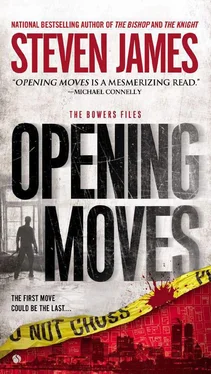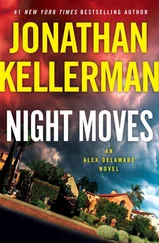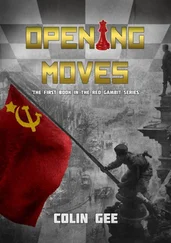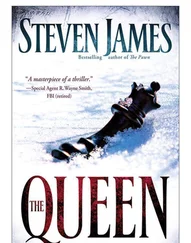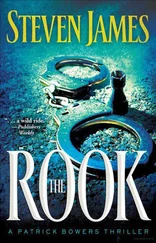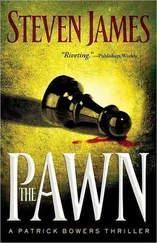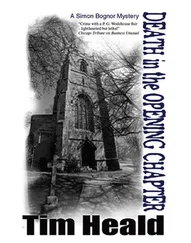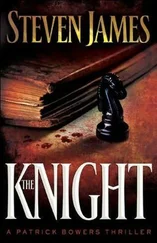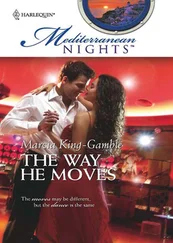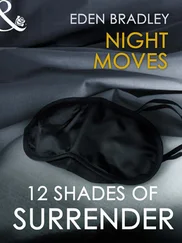Steven James - Opening Moves
Здесь есть возможность читать онлайн «Steven James - Opening Moves» весь текст электронной книги совершенно бесплатно (целиком полную версию без сокращений). В некоторых случаях можно слушать аудио, скачать через торрент в формате fb2 и присутствует краткое содержание. Жанр: Полицейский детектив, на английском языке. Описание произведения, (предисловие) а так же отзывы посетителей доступны на портале библиотеки ЛибКат.
- Название:Opening Moves
- Автор:
- Жанр:
- Год:неизвестен
- ISBN:нет данных
- Рейтинг книги:4 / 5. Голосов: 1
-
Избранное:Добавить в избранное
- Отзывы:
-
Ваша оценка:
- 80
- 1
- 2
- 3
- 4
- 5
Opening Moves: краткое содержание, описание и аннотация
Предлагаем к чтению аннотацию, описание, краткое содержание или предисловие (зависит от того, что написал сам автор книги «Opening Moves»). Если вы не нашли необходимую информацию о книге — напишите в комментариях, мы постараемся отыскать её.
Opening Moves — читать онлайн бесплатно полную книгу (весь текст) целиком
Ниже представлен текст книги, разбитый по страницам. Система сохранения места последней прочитанной страницы, позволяет с удобством читать онлайн бесплатно книгу «Opening Moves», без необходимости каждый раз заново искать на чём Вы остановились. Поставьте закладку, и сможете в любой момент перейти на страницу, на которой закончили чтение.
Интервал:
Закладка:
“NRCS?” Corsica asked.
“National Resources Conservation Service. Part of the Department of Agriculture. They have soil sample data from every county in the U.S. Anyway, they matched the sample to southeastern Wisconsin. Two counties-Milwaukee or Waukesha.”
Nice. Maybe these guys were the real deal after all.
“That, however, was released to the media,” Ralph grumbled. Then he echoed what I’d been thinking. “Obviously it’s not one hundred percent certain, but now, with the timing, the severing of Ms. Hayes’s hands, the links to cannibalism, to Dahmer, well, there’s a good chance that what happened there and what’s happening here are linked.”
“You have case files from the other homicides?” I asked him.
A nod. “I’ll get them as soon as we’re done here. But for now, I want you to fill me in on what happened last night.”
I did most of the talking, with Radar, Corsica, and Thorne offering a few details I hadn’t heard yet:
(1) Colleen Hayes had been home from the time she talked to her husband at 6:35 p.m. until 9:15 p.m. when a neighbor saw a car pull away from the street behind her house.
(2) According to Colleen, the blood in the kitchen came from a cut on her left hand when she was struggling with her attacker, who had a knife.
(3) There was no sign of forced entry at the home.
(4) A small square of tinfoil was found on the floor of the bar, but it contained no prints other than Vincent’s.
When we finished, Ralph turned to Thorne. “Your department was responsible for bringing in Dahmer. What do you make of this wack job coercing the guy to leave a handcuffed man in that same alley?”
He reflected on that for a moment. “In ’ninety-one, it was a cuffed African-American man close to the same age as Lionel who eventually led us to Dahmer. The alley, of course, is where Konerak Sinthasomphone was found cuffed and naked. Maybe our guy’s trying to say that Dahmer got caught; but that he’s better than Dahmer, that he won’t. What do you think, Corsica?”
She’d been lead on the Dahmer investigation. “I agree. Definitely.” But then she saw the skepticism in my eyes. “What is it, Patrick?” My friends call me Pat, so I was cool with her calling me Patrick.
“I think it’s premature to try guessing what this guy was trying to communicate by his actions or to conclude anything ‘definite’ about them.”
“Well,” Ralph said to me, “you were there last night. Any ideas on possible motive?”
“I’m not one to speculate on motives. The real issue here isn’t ‘why it happened’ but ‘what happened.’ On the surface there’s a connection, but-”
“Hang on.” Ellen adjusted her glasses. “You don’t speculate on motives? What does that mean-you don’t look for them?”
“No. I don’t. I’d rather-”
“Patrick doesn’t believe in motives.” It was Corsica, a clear challenge in her tone.
“Actually,” I countered, “that’s not quite right. I do believe in motives, but more specifically in reasons . We all have reasons for the things we do. All behavior is, to some extent at least, undertaken to achieve a goal, but since trying to figure out specifically what that goal is-considering that the person doing it might not even know why he’s doing it-ends up being fruitless, nothing more than a guessing game, I don’t put much stock in the process. Besides, nowhere in our justice system does the law require showing motive.”
“But what about first-degree murder or arson?” Corsica pressed me. “You need to prove intent in arson cases; premeditation to get a first-degree murder conviction.”
“Premeditation and intent are different from motive.” There was no way I should’ve had to be explaining this to her, especially not here in front of everyone. But she wasn’t letting it drop and if she wanted a lesson, I could give her one. “Intent is what you’re trying to accomplish, premeditation is how you’re going to go about it, but motive is the reason why. The first two can be proven beyond reasonable doubt, the third cannot.”
She gave me a dubious look, and I took it as a prompt to go on. “People act certain ways because of needs, desires, unconscious impulses, habits, goals, personality differences-all those things affect our choices and actions, and all of them intertwine with each other. It’s impossible to untangle them and surmise their collective, or even their respective, influence in one word like ‘greed’ or ‘lust’ or ‘hatred.’ Besides, in the end, the why is always the same. Ultimately, all criminals commit their crimes for the same reason.”
Ralph eyed me curiously. “And that is?”
“Because they believe it will make them happy.”
“Really?”
“Yes.”
“Everything they do?”
“Yes. Just like us.”
“Come on, Patrick.” Corsica sounded like she was mimicking a schoolteacher reprimanding a child. “Even you don’t believe that everything everyone does is just because they’re trying to be happy. You’re just trying to be provocative and this isn’t the time or place for those kinds of games.”
Alrighty, then.
We could do this.
I took a breath and picked up the gauntlet that’d been tossed at my feet.
13
“Annise, no one ever chooses to do something that he thinks will make him miserable. Whether it’s drugs, murder, workaholism, I don’t care, it doesn’t matter-even suicide-people act in ways they believe will bring relief, pleasure, or satisfaction. It all boils down to the desire for happiness. Happiness is the end to which we all aspire.” I wasn’t the first one to point this out; philosophers have noted it for centuries. For some reason, law enforcement has been slow to pick up on it.
But now I could tell it wasn’t just Corsica. Ellen remained skeptical as well: “But people punish themselves all the time, Patrick. Mentally, emotionally, psychologically, physically. You’re saying that they’re doing it because they believe mental illness or social isolation makes them happy?”
“No. But why do people torture themselves emotionally?”
“Because of guilt or shame or low self-esteem,” she answered, “or any number of reasons.”
“But what is the goal? People don’t dwell on their guilt or shame, beat themselves up emotionally, or isolate themselves socially in the hopes that they’ll feel worse, but because they hope it’ll eventually make them feel better-maybe about their penance, or as a way to quantify their guilt, or to quiet their consciences or to distract themselves or rationalize away their pain, or, as you just said, for any number of reasons. But ultimately, they want to be happy.”
Ralph seemed to be right with me. “And you’re saying it’s the same for the guy who killed these women?”
“Yes. Criminals aren’t essentially different from other people. They might commit crimes we can’t imagine ourselves doing, but all of us are capable of the unthinkable, given the right circumstances, mental state, and precipitators.”
A nod. He agreed. The nineties have been a violent decade. Milwaukee had 127 homicides last year, and I’d worked 29 of them, but considering how many cases the NCAVC assists with each year, I guessed that Ralph might’ve already been involved in more homicide investigations than I would be in my entire career.
“So,” he said, “the secret to finding this psycho-if it’s even the same guy in all three cases-is to find out what he thinks will make him happy.”
“If we knew that,” I admitted, “it would be helpful. Yes.”
“Motive.” Corsica looked triumphant.
I was ready to reply when Radar interjected, “But at this point that’s not possible to determine.”
Читать дальшеИнтервал:
Закладка:
Похожие книги на «Opening Moves»
Представляем Вашему вниманию похожие книги на «Opening Moves» списком для выбора. Мы отобрали схожую по названию и смыслу литературу в надежде предоставить читателям больше вариантов отыскать новые, интересные, ещё непрочитанные произведения.
Обсуждение, отзывы о книге «Opening Moves» и просто собственные мнения читателей. Оставьте ваши комментарии, напишите, что Вы думаете о произведении, его смысле или главных героях. Укажите что конкретно понравилось, а что нет, и почему Вы так считаете.
